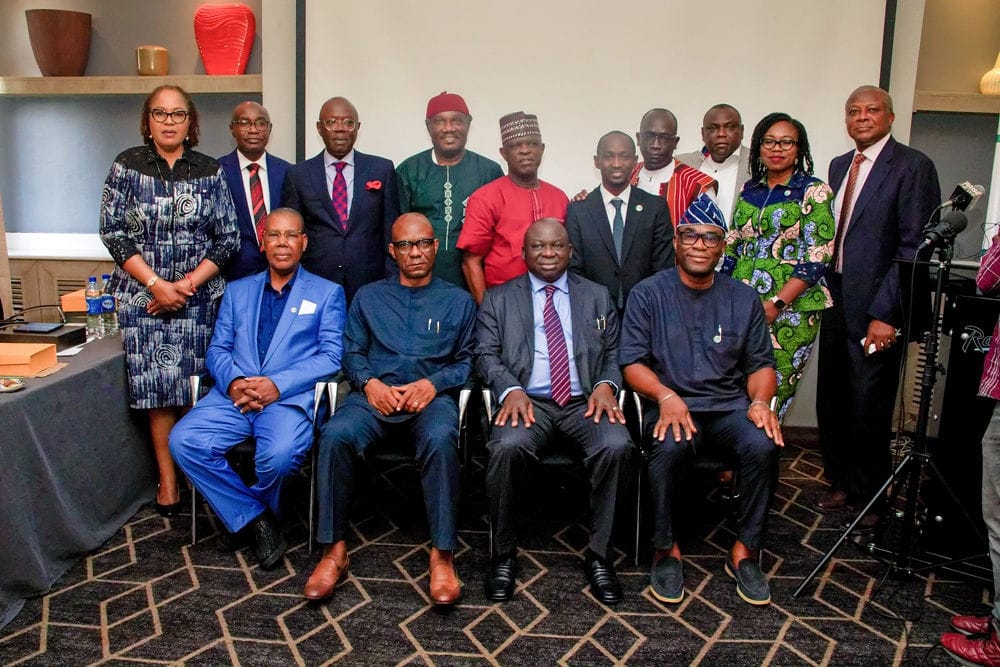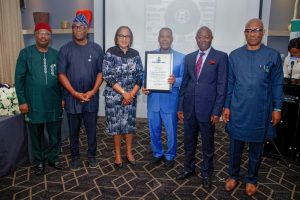News
EAPEAN Seek FG’s Intervention in Simplifying Recruiter’s License, Stamps Out Quackery

By Our Reporter
The Employers Association for Private Employment Agencies of Nigeria (EAPEAN) has urged the Federal Government to simplify the process of obtaining and renewing recruiters’ licences and stamping out quackery in the industry.
The President of EAPEAN, Dr Olufemi Ogunlowo, gave the advice on Thursday in Ikeja, during the official launching of the Employers Association for Private Employment Agencies of Nigeria (EAPEAN) formerly Human Capital Providers Association of Nigeria (HuCaPAN) and the First Private Employment Agencies Chief Executives Conference.
Ogunlowo said that simplifying the licensing process would ensure the effectiveness of the association, for proper employee recruitment.
“The Federal Ministry of Labour and Employment is urged to simplify the process of obtaining and renewing recruiters’ licences. It is also recommended that the ministry reinstate the joint monitoring exercise requested by our members,” he said.
Ogunlowo said that quackery must be addressed through a multifaceted approach, and joint monitoring was one strategy that could be effectively used to reduce such incidents.
“Our request for joint monitoring aims to ensure better regulation of the industry and to deter unlicensed operators by making quackery unattractive and practically impossible,” he said.
Ogunlowo urged the Heads of Human Resources of various companies to always work with licensed employment agencies, to make the operation of quacks impossible.
“By doing this, we can jointly stamp out quackery in the sector by default,” he said.
Ogunlowo said the private employment agencies played a crucial role in Nigeria’s economy, acting as intermediaries between employers and job seekers, connecting talent with opportunities.
He said that by providing recruitment and job placement services, private employment agencies contribute to job creation, economic growth, and overall social development.
“The establishment of this association is a testament to the commitment and dedication of our esteemed members. By coming together, we aim to enhance professionalism, foster collaboration, and promote best practices within the private employment industry.
“This association will provide a platform for information sharing, networking, and mentorship, ultimately benefiting both employers and job seekers,” he said.
In her goodwill message, the Minister of Labour and Employment, Mrs Nkeiruka Onyejeocha, said the ministry would continue to support the organisation to attain greater heights, as long as its members remained committed to the ethos of the profession.
Onyejeocha, who was represented by Mr John Nyamali, the Director, of the Employment and Wages Department of the Ministry, said that employers’ associations provided different sectoral public goods that were capable of influencing economic outcomes.
“Your new status will enable you to deliver such public goods including collective bargaining, business information and training; national and international representation; shaping regulations and standards, and industry coordination.
“We expect that you will deliver these services to your members with the utmost sense of commitment and patriotism.
“I, therefore, urge you to consolidate on the gains already recorded and widen your horizon by seriously considering registration with the International Organisation for Employers and World Association of Private Employment Agencies.
“This will enable you to leverage on their experiences and expertise, with a view to possible adaptation of best practices,” she said.
In his goodwill message, the President, the National Industrial Court of Nigeria, Justice Benedict Kanyip, called on the National Assembly to provide a legislative framework for the practice of outsourcing in Nigeria, considering its critical role.
Giving the keynote address, Mr Ahmed Gobir, Chairman, of the Professional Conduct, and Ethics Committee, called on stakeholders in the employment sector to embrace outsourcing as a strategic tool for driving growth, innovation, and competitiveness in organisations.
Gobir urged the government to promote an enabling environment for outsourcing industry growth, by implementing supportive policies, regulatory frameworks, and incentives that encouraged investment, innovation, and job creation.
He also called on the government to foster collaboration between public and private sectors, to address infrastructure deficiencies, skills shortages, and regulatory constraints that impacted outsourcing activities.
Gobir charged outsourcing providers to continuously innovate and differentiate their offerings to meet evolving client needs and market demands.
He also urged them to invest in talent development, technology adoption, and service quality improvements to deliver value-added solutions that would drive client satisfaction and loyalty.
-

 News4 days ago
News4 days agoInsecurity: Kogi Schools Resume On Monday
-

 Opinion3 days ago
Opinion3 days agoDon’t Pull the Plug: Why Nigerians Are Pleading for the U.S. to Extend Its Police Training Program — and Why It Must Synergize With New Military Arrivals
-

 Crime3 days ago
Crime3 days agoVigilante Reportedly Shoots Colleague Dead In Plateau
-

 Crime5 days ago
Crime5 days agoPolice Arrest Two Over Murder Of 62-Year-Old Woman In Oyo






